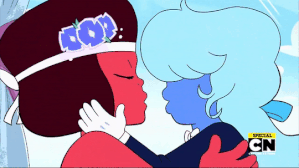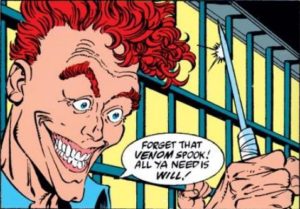The Charismatic Serial Killer Archetype, Part 3:
The Meaning of Cool
Previously, on BrotherBored…
In Part 1 of this series, I wrote about how “Venom” (2018) teased that “Venom 2” will likely feature the supervillain serial killer Carnage. I explained how the scene introducing Woody Harrelson as Cletus Kasady strongly reminded me of how Dr. Hannibal Lecter is depicted in “The Silence of the Lambs” (1991), and how many other villains’ portrayals seem to have been influenced by that movie. I call this “The Charismatic Serial Killer Archetype.”
The thesis of this series is that the Charismatic Serial Killer is a popular character because he is “cool.” I will gradually explore how I reached this conclusion and why it disturbs me.
In Part 2 of this series, I explained my belief that American culture can be understood, in part, by examining the movies made by and for Americans. Not only that, I specifically think that there are hidden, unspoken ideas that guide American thinking that can only be understood by implication (such as ideas implied by movies). I discussed many different ways that the hidden thinking (of individuals and of society-at-large) can be discovered.
Those analytical ideas form the skeleton of a thesis that I will now flesh out in this part. Here in Part 3, I will discuss what makes the Charismatic Serial Killer so “cool.”
What is “Cool?”
To explain what I mean when I say that people think of a serial killer as a “cool” person, I first have to tell you about my understanding of “coolness.” I’m not referring to temperament (as in, “keeping one’s cool”). I’m talking about how English-speakers[1]Specifically or especially North Americans, I think? refer to a person’s peculiar likability when they say something like “he’s really cool!”
In my experience, this is the definition of a cool person: someone who purposefully and successfully transgresses the rules of society (laws, customs, or an other societal expectations) without upsetting the friends in their company.
In other words, a cool person is someone who:
- Accurately perceives that the boundary of acceptable behavior is somewhere beyond what their friends[2]”Friends” is interchangeable with “audience” here. believe this social boundary to be.
- For example, the friends might all “know” that coarse language is generally not acceptable in polite company, including the present company. But a cool person might accurately assess that all the friends privately enjoy coarse language.
- Transgresses the society-created boundary perceived by the friends, but not the actual social boundary of the situation maintained by the friends.
- Continuing the example, the cool person might use coarse language (despite the generally-understood prohibition), to the surprise and delight of the friends. But certain language (e.g., bigoted insults) might be “going too far” and a cool person would not break the friends’ taboo.
- For another example, the friends might secretly enjoy a certain amount of lawbreaking (like speeding cars or smoking marijuana), but serious lawbreaking (like grand theft) might alienate them.
Thus, the cool person operates inside the gap between the usual social expectations for society in general, and the looser expectations of a certain group of friends or audience.
Within a group of people whose expectations completely match those of society in general (or whose expectations are even more stringent!), coolness is necessarily impossible; any boundary transgression will violate the group’s expectations.[3]I think such people used to be called “squares.” I have no idea what modern slang might be appropriate. And even when a sufficient gap exists, the cool person must respect the personal boundaries of the friends, or else the transgressions will be actual transgressions upon the friends (and thus be uncool).
Also, I think I should I explicitly say that some of society’s rules are harmful and should be transgressed.

Steven Universe is one of the coolest shows ever made, in my opinion. The creators of Steven Universe unequivocally portrayed beautiful, romantic love between two characters of the same gender in a children’s cartoon. Portrayals of same-sex romance are still fairly taboo in U.S. culture (especially a positive portrayal) — and definitely taboo for children’s programming. But because I, like other people watching the show, do not hold with this taboo, I am absolutely delighted to see it transgressed.
So I’m not saying that “cool” is good or bad; I’m just saying what I think it is.
All of us have experienced a cool person. Most of us have been a cool person at times. The cool person is willing to do what everyone secretly wants to do, but they either lack the perception to know that doing so is O.K. or lack the courage to transgress social boundaries even when nobody is around who will enforce them.
A cool person is a source of special pleasure: they take all the risks, but the friends around them benefit from their antics as much as they do. Even if whatever the cool person does is of no tangible benefit to their friends, the friends will enjoy having their private, personal boundaries (as opposed to those of society in general) affirmed by the cool person. The extent of this pleasure, especially for people that come from a rigid society or strict family, is difficult to overstate — and, in my opinion, explains a lot of apparently-aimless transgressive behavior (especially by young people).

“It’s cool, because the collar isn’t supposed to go that way.”
“Cool”-Blooded Killers
According to my own understanding of “cool,” here is how I will establish that a Charismatic Serial Killer is a cool person:
- Americans insist on telling each other that they believe “killing is wrong,” especially “murder.”[4]Murder is defined as illegal killing. More on that later. In public, civil society, formal situations, etc. Americans must (and generally do) affirm the wrongness of killing. To kill is to transgress a culture-wide social boundary. Killing is “taboo.”
- Privately though, many Americans believe killing to be acceptable and even desirable. Some are quite frank about these personal beliefs. Referring back to Part 2 of this series, many Americans in fact have no taboo against killing even if they don’t appreciate this is how they think.
- Therefore, Charismatic Serial Killer characters become “cool” by transgressing the nominal social prohibition against killing and murder in front of an audience that secretly desires and affirms killing.

The cool person is willing to do what everyone secretly wants to do, but they either lack the perception to know that doing so is O.K. or lack the courage to transgress social boundaries even when nobody is around who will enforce them.
I ask you to look again at this introductory image of Cletus Kasady from “The Amazing Spider-Man #344” (1991). This time, instead of thinking about how this character appears, consider what he is saying in his speech bubble: “Forget that Venom spook! All ya need is will!” I think the writer probably wants Kasady to convey to Eddie Brock (who at this point in the story, believes that the alien symbiote that combines with him to become the monster Venom has been destroyed) that super-powers are not needed to behave like a super-being (in case you don’t know or remember, Venom is a psychotic monster who typically kills and even devours his enemies).
Let me ask you though: Kasady says “All ya need is will,” what else might he mean? Don’t worry about what happens in the comics. Think about what this image, with this text, means to you. We’ll come back to this in later in this series.
In Part 4, I’m going to show how killers have the opportunity to become “cool” by operating inside the gap between American culture’s nominal aversion to homicide and its barely-concealed bloodlust. Click here to continue.